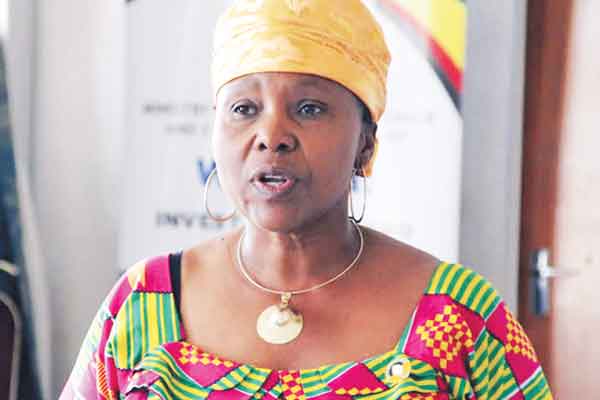
For the third time in just three years, 18 000 impoverished Tokwe-Mukosi dam flood survivors are again set to be relocated ostensibly so as to allow them to benefit from the recently completed biggest inland dam in the country.
By Tatenda Chitagu
President Robert Mugabe officially commissioned the dam last month.
Masvingo Provincial Affairs minister Shuvai Mahofa, giving her welcome remarks at the function, pleaded with Mugabe that the Chingwizi villagers be moved again.
“The dam is complete, it’s time the people come back,” Mahofa told Mugabe.
But the villagers have vowed that they will resist the third relocation attempt.
“Over our dead bodies,” said an old lady who asked not to be identified for fear of reprisals.
“They have tossed us, around for a long time as if we are second-class citizens.
- Chamisa under fire over US$120K donation
- Mavhunga puts DeMbare into Chibuku quarterfinals
- Pension funds bet on Cabora Bassa oilfields
- Councils defy govt fire tender directive
Keep Reading
“Is it a crime that we were in an area where a national project was constructed?
“Either way, we are as good as dead here in the bush — the government has neglected us like desecrated graves.”
The first movement was from the Tokwe-Mukosi dam flood basin where people who were directly affected by flooding were evacuated while those in the catchment area were forcibly ejected without compensation. This happened in February 2014 following heavy rains that pounded Chivi and Masvingo South communal areas.
When the first batch was transported in lorries together with their goats to Chingwizi camp, then provincial affairs minister Kudakwashe Bhasikiti promised them heaven on earth.
“Forget about where you were….this is like the biblical Canaan,” he said at the time.
However, after six months at the Chingwizi transit camp, they were again forcibly moved to one-hectare plots about 40km away in the vast Nuanetsi Ranch, although they had refused to move, saying they needed compensation first and more land, about four hectares each.
They eventually settled on one-hectare plots and they say they were told not to build permanent structures over the years, a situation that has left them hanging.
“Since we settled here, we were told not to build permanent structures since we will be moved. In 2015, the officials tried to move us to pave way for an ethanol project, but we resisted,” a disgruntled villager said.
“Now they are using the trick that they want us to go to places where we will benefit from the irrigation infrastructure to be created from the dam. But when will that be?
“And if they cannot fully compensate us, where will the money for the irrigation infrastructure come from?”
Environment, Water and Climate minister Oppah Muchinguri told journalists in April during a tour of the Lowveld that $12 million was needed to clear land for the development of an irrigation scheme to benefit the villagers.
Out of the $9 million needed for their compensation, only $3,5 million was availed, which did not cover everyone.
The villagers were reportedly promised $3 000 per family.
Another $1,5 million was released about a week before Mugabe went to officially commission the dam. Masvingo provincial administrator Fungai Mbetsa confirmed this in a telephone interview on Friday.
“We have released an additional $1,5 million for the villagers’ compensation. They have already got their money,” Mbetsa said.
While some villagers acknowledged receipt of the money, they said their properties were under-valued.
But their eviction from Chingwizi, like that from the dam flood basin and its nearby catchment area, did not come without incident.
After several resistance efforts that included chasing away 10 ministers and torching two police cars, 300 of the villagers were rounded up and arrested.
Only 30 were taken to court where 26 were acquitted. The other four — including their spokesperson Mike Mudyanembwa and 60-year-old Nyengeterai Tagwirei — were jailed five years each.
This left the villagers at their weakest.
In 2015 the villagers resisted being relocated to pave way for an ethanol plant owned by Billy Rautenbach, whose first attempt to set up the project in 2008 failed due to political bickering and shortage of water.
But the hapless villagers say they do not want to be moved again as they are not sure whether they will benefit from the project because of countless unfulfilled promises. That is despite the challenges they faced in being moved from the dam basin.
“We spent three days in the rain at Muzvidziwa bus stop along the Masvingo-Beitbridge highway, before being bundled to Chingwizi transit camp in Nuanetsi Ranch in the arid Mwenezi district,” another villager, originally from Masvingo South’s Chihuku Village under Chief Nyajena, said.
“Overnight, our lives turned upside down, although we had been promised a better life and compensation.
“We lost property, livestock and other sentimental items.
“The camp was overcrowded. We suffered several disease outbreaks and our children’s schooling was disrupted. Some were impregnated.
“We were reduced to be vagrants, facing food shortages. The lucky ones got small tents, while many lived in makeshift structures that resembled a refugee camp. Now to imagine that we will face the same consequences is really bothersome,” he said.
The villagers said they were tired of being moved up and down and risked losing the few belongings that they were lucky to remain with. They have vowed to resist being moved again, saying they are always on the receiving end. However, Mbetsa said he was unaware that the villagers would be moved for the third time.
“I am not aware of that, so I cannot comment on that,” he said.
Tokwe-Mukosi is set to create a green belt which will come with sugarcane irrigation, fisheries, employment and power generation, among other projects.










